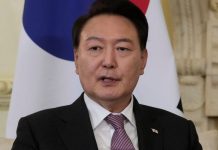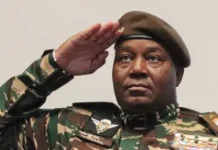Rebel forces have declared Damascus, the Syrian capital, “liberated” after storming the presidential palace on Sunday, December 8, 2024, in a significant turn of events during the ongoing Syrian civil war.
Videos shared online show fighters celebrating on the grounds of the palace, firing their weapons into the air near a gatehouse on the southern edge of the compound. The area was otherwise deserted.
In a televised statement aired on state media, a rebel spokesperson proclaimed, “Damascus has been liberated, and the tyrant Bashar al-Assad has been overthrown. Oppressed prisoners in regime prisons have been released.” He urged Syrians to protect property and declared, “Long live Syria, free for all Syrians of all sects.”
Rebel forces seized control of state media facilities early Sunday morning, further solidifying their position.
Civil War Context and Rebel Momentum
The Syrian civil war, which began in 2011 amidst Arab Spring protests, has been marked by years of brutal conflict involving various armed factions. Assad’s regime, backed by Russia and Iran, has faced opposition from groups like the Free Syrian Army and Hayat Tahrir al-Sham (HTS), supported by NATO and Gulf states.
Following a series of setbacks for Assad’s allies, including the Russian war on Ukraine and Israeli strikes on Hezbollah and Iranian forces, rebel groups launched a rapid offensive last week, culminating in their capture of Damascus.
Assad’s Whereabouts Unknown
As of Sunday morning, Bashar al-Assad’s location remains unknown. Reports suggest he has fled to a secret location. Rebel forces are interrogating military and intelligence officials to determine his movements. Assad has not made any public statements since the rebels entered the capital.
Government Response
Syrian Prime Minister Mohammad Ghazi al-Jalali released a recorded statement expressing readiness to cooperate with any leadership chosen by the people. He called for the protection of public property, emphasizing its importance to all citizens, and urged a peaceful transition of government functions.
HTS Leadership Statement
Ahmed al-Sharaa, leader of Hayat Tahrir al-Sham, issued directives forbidding rebel forces from damaging public institutions or firing celebratory gunfire. He emphasized the need to preserve state facilities for a stable transition.
This pivotal moment in Syria’s history may signal a new chapter after years of devastating conflict. However, the road ahead for rebuilding and unifying the country remains uncertain.













